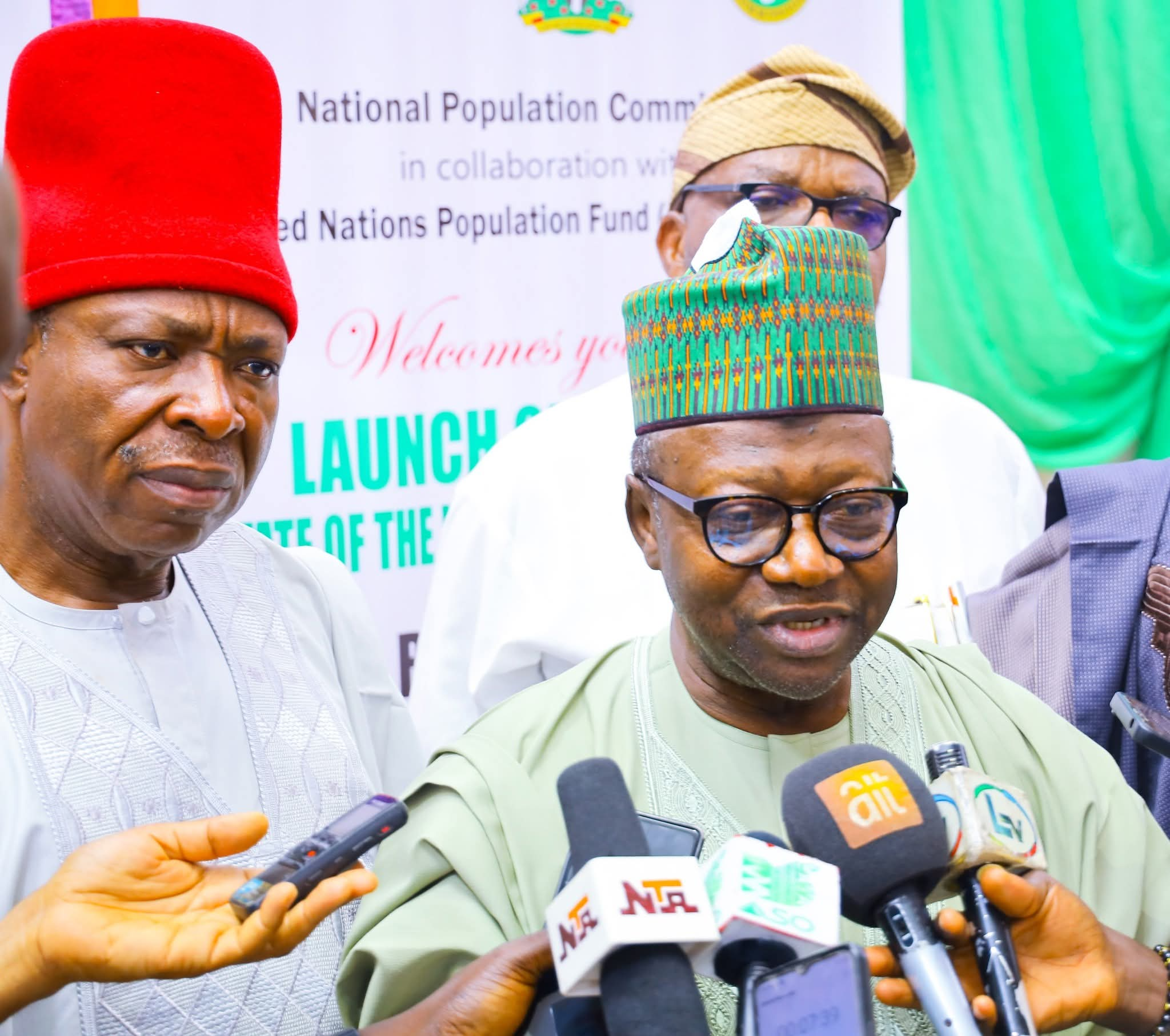NPC LAUNCHES 2025 STATE OF THE WORLD POPULATION REPORT

The National Population Commission (NPC), in collaboration with the United Nations Population Fund (UNFPA), officially launched the 2025 State of World Population (SWOP) Report today, 17th June 2025. The event, held at the Reiz Continental Hotel in Abuja, focused on the theme, “The Real Fertility Crisis: The Pursuit of Reproductive Health Agency in a Changing World,” emphasizing the importance of reproductive health and individual agency.
In his opening remarks, NPC Chairman Hon. Nasir Isa Kwarra expressed gratitude to UNFPA for its ongoing commitment to shaping global and national population policies. He described this year’s report as a “bold and timely call to action” that addresses the structural inequalities affecting fertility decisions worldwide.
“The real crisis is not simply about how many children people are having,” Hon. Kwarra stated. “It is about the barriers millions face in exercising their reproductive rights.” He highlighted the challenges faced by many individuals in Nigeria, particularly women, including poverty, inadequate healthcare access, and gender inequality, which hinder their ability to make informed reproductive choices.
Hon. Kwarra revealed that according to the latest Nigeria Demographic and Health Survey, the national Total Fertility Rate has decreased from 5.3 to 4.8 children per woman. However, adolescent fertility remains a significant concern, with 15% of young women aged 15–19 either pregnant or having begun childbearing. The report also noted an increase in the prevalence of modern contraceptives among married women, rising to 15%, yet still falling short of the national target of 27% by 2030, he said.
Hon. Kwarra emphasized the need for improved access to family planning services, as the unmet need for these has risen to 21%. “These statistics reflect the stories of young girls and women who struggle to make reproductive decisions without support,” he remarked.
He called for a shift in policy focus, advocating for reproductive agency over mere fertility rates. “When individuals can make informed choices about their reproductive health, they contribute more effectively to their communities,” he asserted.
Concluding his remarks, Kwarra urged all stakeholders—including government institutions, civil society organizations, and the private sector—to collaborate on solutions that prioritize the health and rights of all Nigerians. He underscored the critical need for the National Council on Population Management (NCPM) to convene and chart a way forward in addressing population management and development challenges.
Senator Victor Umeh, Chairman of the Senate Committee on National Identity and Population, emphasized the need for collaboration among stakeholders to expand reproductive health services, education, and social policies that empower individuals. He argued that respect for individual choices regarding family size is essential, warning against the pitfalls of coercive regulations, citing examples from countries like China facing declining fertility rates.
Sen. Umeh expressed concern over significant data gaps in Nigeria, noting that conflicting population figures hinder effective policy-making. He called for an urgent Population and Housing Census, pledging the National Assembly's support to ensure a credible count. He noted that President Tinubu is also committed to the conduct of the census exercise and has set-up a Presidential Committee to identify funding sources for the exercise.
Dr. Iziaq Adekunle Salako, Minister of State for Health, represented by Mr. Alex Ugochukwu, remarked that discussions around fertility have often been narrowly focused on numbers, neglecting the human rights and social conditions that influence reproductive decisions. He emphasized that the true crisis lies not in the number of children but in the ability of individuals to make those decisions freely and with dignity.
Ambassador Usman Sarki, spokesperson for the Population Advisory Group, highlighted that the SWOP 2025 report presents both opportunities and challenges for managing family sizes and ensuring access to reproductive choices. He echoed Kwarra's call for the immediate convening of the NCPM, noting its strategic importance for national well-being, national security and sustainable development, especially under the Renewed Hope Agenda of President Tinubu.
Prof. Oladapo Ladipo, President and Co-Founder of the Association for Reproductive and Family Health (ARFH), urged the NPC and other stakeholders to align the outcomes of the 2025 SWOP report with the NDHS 2023/2024 survey to inform policy decisions and accelerate efforts for a credible national census.
Angela Noyovemeh Aiyejina, a representative of young people, emphasized that youth are not just the leaders of tomorrow but active stakeholders today, ready to contribute their voices and innovation to drive change.
UNFPA Nigeria Officer-in-Charge, Mr. Koessan Kuawu also presented the 2025 SWOP Report's key findings and recommendations at the event.
The launch concluded with a commitment to fostering an environment where every individual has the freedom to shape their reproductive journey without coercion or discrimination.

